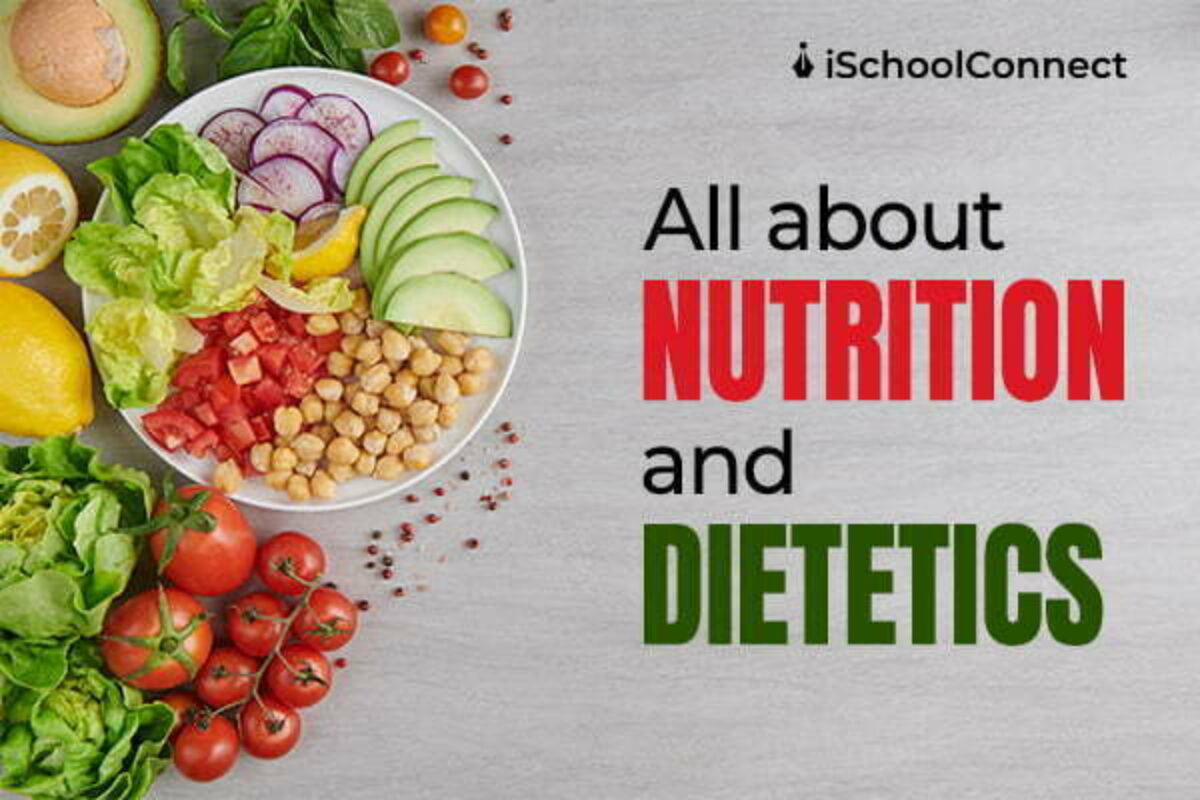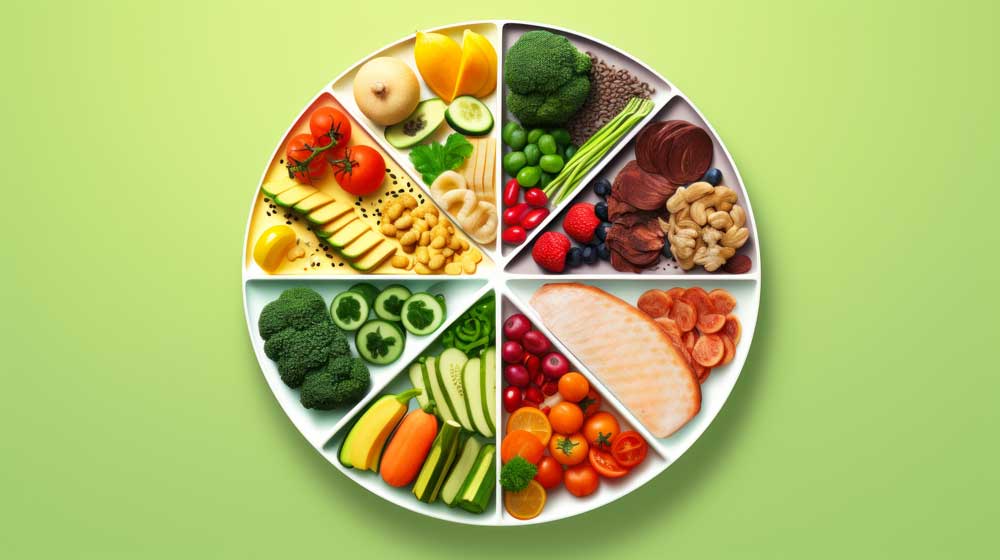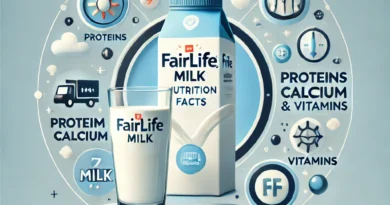What is Nutrition And Diet? : Uncover the Secrets to Healthy Living
Nutrition and diet are essential for a healthy life. They help our bodies function well and stay strong.
Understanding nutrition and diet is vital for everyone. Nutrition refers to how food nourishes the body, while diet is the sum of all foods consumed. Together, they influence health, energy levels, and overall well-being. Many people confuse the two or overlook their importance.
Yet, knowing the basics can lead to smarter food choices and better health. This blog will explore what nutrition and diet mean and why they matter. By the end, you’ll have a clearer picture of how to nourish your body properly. Let’s dive in and discover how you can benefit from better eating habits.

Nutrition Basics
Nutrition is the science of how food affects the body’s health and well-being. A healthy diet supplies the body with essential nutrients to function correctly. Understanding the basics of nutrition helps in making better food choices and maintaining overall health.
Key Nutrients
Key nutrients are substances in food that are vital for health. They provide energy, build and repair tissues, and regulate body processes. The main categories of nutrients include:
- Carbohydrates: The primary source of energy for the body.
- Proteins: Essential for growth and repair of tissues.
- Fats: Provide energy and support cell function.
- Vitamins: Compounds that support various body functions.
- Minerals: Elements that help with bone health, fluid balance, and other processes.
- Water: Vital for maintaining hydration and bodily functions.
A balanced diet includes a variety of foods to ensure an adequate intake of these nutrients. Each nutrient plays a specific role:
| Nutrient | Function |
|---|---|
| Carbohydrates | Provide energy |
| Proteins | Build and repair tissues |
| Fats | Energy storage and cell function |
| Vitamins | Support immune system and body processes |
| Minerals | Bone health and fluid balance |
| Water | Hydration and waste removal |
Macronutrients Vs Micronutrients
Macronutrients and micronutrients are two categories of nutrients essential for health. The main difference lies in the amounts needed by the body. Macronutrients are required in larger quantities. They provide the energy necessary for daily activities and bodily functions. The three main macronutrients are:
- Carbohydrates
- Proteins
- Fats
Each macronutrient has a specific role:
- Carbohydrates: Supply quick energy, found in fruits, grains, and vegetables.
- Proteins: Build muscles, found in meat, beans, and nuts.
- Fats: Store energy, found in oils, butter, and avocados.
Micronutrients are needed in smaller amounts but are equally important. They include vitamins and minerals. Micronutrients support various body functions, such as:
- Immune system
- Bone health
- Blood clotting
- Energy production
Common micronutrients include:
- Vitamins: A, C, D, E, K, and B vitamins.
- Minerals: Calcium, potassium, iron, and magnesium.
To maintain good health, it is crucial to consume a balanced diet that includes both macronutrients and micronutrients. This ensures the body gets all the necessary elements to function optimally.
Importance Of Diet
Nutrition and diet are crucial for maintaining a healthy lifestyle. They provide the body with essential nutrients needed to function correctly. The importance of diet cannot be overstated as it affects both physical and mental health. A balanced diet supports growth, repairs tissues, and supplies energy. Let’s delve into the key roles and impacts of diet on our health and well-being.
Role In Health
A proper diet plays a significant role in maintaining overall health. It helps in preventing chronic diseases and supports vital bodily functions. Here are some key aspects:
- Boosts Immunity: A diet rich in vitamins and minerals strengthens the immune system.
- Supports Growth: Nutrients like proteins and calcium are essential for growth and bone health.
- Prevents Diseases: Consuming a balanced diet can reduce the risk of diseases such as diabetes, heart disease, and obesity.
- Enhances Digestion: Fiber-rich foods improve digestion and prevent constipation.
Additionally, a healthy diet ensures proper functioning of organs. For example:
| Organ | Essential Nutrient | Function |
|---|---|---|
| Heart | Omega-3 Fatty Acids | Reduces inflammation and risk of heart disease |
| Brain | Antioxidants | Improves memory and cognitive function |
| Skin | Vitamin E | Protects from damage and maintains health |
Impact On Well-being
The impact of diet on well-being extends beyond physical health. It also affects mental and emotional health. Here are some important points:
- Improves Mood: Certain foods, like those rich in omega-3 fatty acids, can boost mood and reduce depression.
- Enhances Energy Levels: A balanced diet provides sustained energy throughout the day.
- Reduces Stress: Foods high in magnesium, such as leafy greens, help lower stress levels.
- Promotes Better Sleep: Nutrients like tryptophan found in turkey and milk can improve sleep quality.
Moreover, a good diet can enhance overall quality of life. Consider the following:
| Aspect | Dietary Influence |
|---|---|
| Mental Clarity | Adequate hydration and nutrient-dense foods improve focus and clarity. |
| Physical Fitness | Proteins and carbohydrates support muscle growth and stamina. |
| Emotional Stability | Balanced blood sugar levels prevent mood swings. |
Thus, a well-rounded diet contributes significantly to both physical and emotional well-being. It is essential for a happy and healthy life.
Food Groups
Nutrition and diet are essential for maintaining a healthy body. A balanced diet includes various food groups, each offering different nutrients. Understanding these food groups helps in making healthier choices. Let’s explore the main food groups: fruits and vegetables, and proteins and grains.
Fruits And Vegetables
Fruits and vegetables are vital for a healthy diet. They provide essential vitamins, minerals, and fiber. These nutrients are crucial for maintaining overall health and preventing diseases. Some benefits of including fruits and vegetables in your diet:
- Vitamins and Minerals: They are rich in vitamins A, C, and E, and minerals like potassium and magnesium.
- Fiber: Helps in digestion and prevents constipation.
- Antioxidants: Protects cells from damage.
Here is a simple table showing some common fruits and vegetables and their benefits:
| Fruit/Vegetable | Main Benefit |
|---|---|
| Apple | Rich in fiber, helps in digestion |
| Carrot | High in vitamin A, good for eyesight |
| Spinach | High in iron, good for blood health |
Daily Intake: Aim for at least 5 servings of fruits and vegetables each day. This can include:
- 1 medium-sized fruit (apple, banana)
- 1 cup of leafy greens (spinach, lettuce)
- 1/2 cup of chopped vegetables (carrots, broccoli)
Proteins And Grains
Proteins and grains are equally important. They provide energy and essential nutrients for the body. Proteins: Help in building and repairing tissues. Good protein sources include:
- Meat and Poultry: Chicken, beef, turkey
- Fish: Salmon, tuna
- Beans and Legumes: Lentils, chickpeas
- Dairy: Milk, cheese, yogurt
Grains: Provide energy and are rich in fiber. They include:
- Whole Grains: Brown rice, quinoa, oats
- Refined Grains: White bread, white rice (less nutritious than whole grains)
Here is a table showing some common protein and grain sources and their benefits:
| Protein/Grain | Main Benefit |
|---|---|
| Chicken | High in protein, helps in muscle building |
| Quinoa | Rich in fiber, good for digestion |
| Salmon | High in omega-3 fatty acids, good for heart health |
Daily Intake: Ensure to include a balanced amount of proteins and grains in your diet:
- 2-3 servings of protein (100g meat, 1 cup beans)
- 3-5 servings of grains (1 slice bread, 1/2 cup cooked rice)
Incorporating a variety of foods from these groups helps in maintaining a balanced and nutritious diet.
Dietary Guidelines
Understanding nutrition and diet is crucial for maintaining a healthy lifestyle. Dietary guidelines provide a framework to help individuals make informed food choices. These guidelines are based on scientific evidence and aim to promote health and prevent chronic diseases.
Recommended Intake
Each food group has its own recommended daily intake. These guidelines help ensure you get the necessary nutrients your body needs. Below is a table with general recommendations:
| Food Group | Daily Recommended Intake |
|---|---|
| Fruits | 2 cups |
| Vegetables | 2.5 cups |
| Grains | 6 ounces |
| Protein Foods | 5.5 ounces |
| Dairy | 3 cups |
Fruits and vegetables should make up a large portion of your diet. They provide vitamins, minerals, and fiber. Grains, especially whole grains, give you energy. Protein foods such as meat, beans, and nuts help build and repair tissues. Dairy products are important for bone health. Moderation is key. Too much of any one food group can lead to imbalances. Following these guidelines can help maintain a healthy weight and reduce the risk of chronic diseases.
Balancing Diets
A balanced diet includes a variety of foods from each food group. This ensures you get a mix of nutrients. Here are some tips to balance your diet:
- Include a variety of foods from each food group.
- Watch portion sizes to avoid overeating.
- Limit added sugars, sodium, and unhealthy fats.
- Stay hydrated by drinking plenty of water.
Planning meals can help balance your diet. Aim for half your plate to be fruits and vegetables. One-quarter should be grains, and the other quarter should be protein. Dairy can be a side item or part of the meal. Below is an example of a balanced meal:
| Food Item | Food Group |
|---|---|
| Grilled Chicken | Protein Foods |
| Brown Rice | Grains |
| Steamed Broccoli | Vegetables |
| Apple Slices | Fruits |
| Low-fat Milk | Dairy |
Balancing diets helps maintain energy levels and supports overall health. By following dietary guidelines, you can enjoy a variety of foods while meeting your nutritional needs.
Common Diets
Nutrition and diet are crucial for a healthy lifestyle. They help our body get the right nutrients and energy. There are many diets people follow to stay healthy. Some diets are better for heart health, while others may help with weight loss. Let’s explore some common diets people follow.
Mediterranean Diet
The Mediterranean Diet is inspired by the eating habits of people living near the Mediterranean Sea. This diet is rich in fruits, vegetables, whole grains, and healthy fats. It is known for its benefits to heart health and longevity. Key components of the Mediterranean Diet include:
- Fruits and vegetables: Eat a variety of colorful fruits and vegetables every day.
- Whole grains: Choose whole grain bread, pasta, and rice.
- Healthy fats: Use olive oil as the main source of fat. Include nuts and seeds.
- Fish and seafood: Eat fish at least twice a week.
- Poultry and dairy: Consume in moderate amounts. Choose low-fat options.
- Red meat: Eat red meat occasionally.
- Wine: Drink wine in moderation, if you drink alcohol.
This diet emphasizes fresh, whole foods. It also encourages physical activity and enjoying meals with family and friends.
Plant-based Diet
A Plant-Based Diet focuses on foods that come from plants. This includes fruits, vegetables, nuts, seeds, oils, whole grains, legumes, and beans. It can be a very healthy way to eat. Key aspects of the Plant-Based Diet include:
- Fruits and vegetables: Make them the main part of your meals.
- Whole grains: Choose whole grains like brown rice, quinoa, and oats.
- Legumes: Include beans, lentils, and peas in your diet.
- Nuts and seeds: Eat nuts and seeds for healthy fats and protein.
- Plant-based proteins: Use tofu, tempeh, and seitan as protein sources.
People on a Plant-Based Diet avoid or limit animal products. This includes meat, dairy, and eggs. Some people choose this diet for health reasons. Others choose it for environmental or ethical reasons. Overall, a Plant-Based Diet can offer many health benefits. It can help with weight loss, reduce the risk of heart disease, and improve overall well-being.

Nutrition Myths
Nutrition and diet are essential aspects of our daily lives. They help keep our bodies healthy and functioning properly. But with so much information out there, it’s easy to get confused. Many nutrition myths circulate, making it hard to know what to believe. In this blog post, we’ll address some common nutrition myths and separate fact from fiction.
Debunking Misconceptions
Many people believe myths about nutrition that can lead to unhealthy choices. Here are a few common misconceptions:
- Myth: Carbs are bad for you.
- Fact: Not all carbs are created equal. Whole grains, fruits, and vegetables are healthy carbs that provide energy and nutrients.
- Myth: Eating fat makes you fat.
- Fact: Healthy fats, like those from avocados and nuts, are essential for your body. They help with cell function and nutrient absorption.
Let’s look at more myths and the truths behind them:
| Myth | Truth |
|---|---|
| Eating late at night causes weight gain. | Weight gain is about total calorie intake, not timing. |
| You need supplements to be healthy. | Most people get enough nutrients from a balanced diet. |
Understanding these truths can help you make better choices. Avoiding these myths ensures you follow a balanced and healthy diet.
Fact Vs Fiction
It is important to know what is true and what is not. Here are some common statements, and whether they are fact or fiction:
- Statement: Detox diets cleanse your body.
- Fiction: Your liver and kidneys naturally detoxify your body. No special diet needed.
- Statement: Skipping meals helps you lose weight.
- Fiction: Skipping meals can slow down your metabolism. Eating regular, balanced meals is healthier.
Here’s a comparison table to help clarify more facts and fictions:
| Statement | Fact or Fiction |
|---|---|
| Eating protein builds muscle without exercise. | Fiction. Exercise is essential for muscle growth. |
| All calories are equal. | Fiction. Nutrient-dense foods provide more health benefits. |
Recognizing these myths ensures you follow a nutritious and balanced diet. It is vital to rely on accurate information for better health.
Personalized Nutrition
Nutrition and diet are crucial for maintaining health and well-being. They involve the intake of foods and nutrients needed by our bodies to function properly. Personalized nutrition is a modern approach that tailors dietary plans to individual needs. This method takes into account various factors, including lifestyle, health conditions, and genetic makeup, to optimize health outcomes.
Tailoring Diets
Personalized nutrition recognizes that one diet does not fit all. Tailoring diets involves creating eating plans that suit an individual’s specific requirements and preferences. This approach can help address unique health concerns and dietary needs. Here are some key aspects:
- Health Conditions: People with conditions like diabetes, hypertension, or allergies need specialized diets.
- Lifestyle: Active individuals may require more calories and specific nutrients than sedentary people.
- Preferences: Cultural and personal food preferences are considered to ensure the diet is enjoyable.
A tailored diet may include:
| Diet Type | Target Group | Key Features |
|---|---|---|
| Keto | Weight loss seekers | High fat, low carb |
| Vegan | Plant-based eaters | No animal products |
| Mediterranean | General health | Rich in fruits, veggies, healthy fats |
Adjusting diets to individual needs can improve adherence and effectiveness. This personalized approach ensures that dietary changes are sustainable and beneficial.
Genetic Influences
Genetics play a significant role in how our bodies respond to different foods and nutrients. Understanding genetic influences can help in personalizing nutrition more effectively. Key points to consider include:
- Metabolism: Some people metabolize fats, carbohydrates, and proteins differently.
- Nutrient Absorption: Genetic variations can affect how well we absorb vitamins and minerals.
- Food Sensitivities: Genes can influence our tolerance to foods like lactose or gluten.
Genetic testing can provide valuable insights. It can help identify specific needs and potential health risks. The process involves:
- Collecting a DNA sample, usually through saliva.
- Analyzing the sample for genetic markers.
- Interpreting the results to guide dietary recommendations.
This information can lead to more precise nutrition strategies. For example, if someone has a genetic predisposition to high cholesterol, a diet low in saturated fats might be recommended. By considering genetic influences, personalized nutrition can be more effective. It helps in making informed decisions about diet and health.

Future Of Nutrition
Nutrition and diet are essential aspects of our lives. They impact our health, energy levels, and overall well-being. As science progresses, so does our understanding of nutrition. The future of nutrition looks promising, with new trends and technological advances shaping how we eat and maintain our health.
Trends In Diet
People’s dietary habits are changing rapidly. New trends in diet are emerging as people seek healthier, more sustainable choices. Here are some notable trends:
- Plant-based diets: More people are adopting plant-based diets. This choice is driven by health concerns, environmental awareness, and ethical reasons.
- Intermittent fasting: Intermittent fasting involves cycles of eating and fasting. It is becoming popular for weight management and metabolic health.
- Personalized nutrition: Personalized nutrition tailors dietary recommendations based on an individual’s genetics, lifestyle, and health status.
- Functional foods: Foods with added health benefits, such as probiotics and omega-3s, are gaining popularity.
These trends reflect a growing awareness of the link between diet and health. People are more informed and proactive about their dietary choices. Here’s a quick comparison of traditional and modern dietary trends:
| Traditional Diets | Modern Diets |
|---|---|
| High in processed foods | Focus on whole foods |
| Meat-centric | Plant-based options |
| Fixed meal times | Flexible eating patterns |
Technological Advances
Technology is revolutionizing the field of nutrition. New tools and innovations are making it easier to eat healthily and understand our nutritional needs. Here are some key technological advances:
- Wearable devices: Devices like fitness trackers monitor our physical activity and dietary intake. They provide real-time feedback and help us make healthier choices.
- Nutrition apps: Apps offer personalized meal plans, track calories, and provide nutritional information. They make it easier to stick to a healthy diet.
- Genetic testing: Genetic tests can reveal how our bodies respond to different foods. This information helps create personalized nutrition plans.
- Food scanners: Portable scanners analyze the nutritional content of food. They help us make informed choices about what we eat.
These technologies are making nutrition more accessible and personalized. They empower individuals to take control of their health. Here’s a look at some popular nutrition technologies and their benefits:
| Technology | Benefits |
|---|---|
| Wearable devices | Track activity, monitor diet |
| Nutrition apps | Personalized meal plans, calorie tracking |
| Genetic testing | Customized nutrition plans |
| Food scanners | Analyze nutritional content |
As these technologies evolve, they will continue to shape the future of nutrition. They offer new ways to understand and improve our diets, leading to better health outcomes.
Frequently Asked Questions
What Is Nutrition?
Nutrition is the process of consuming and utilizing food. It provides the body with essential nutrients. These nutrients are vital for growth, energy, and overall health.
Why Is Diet Important?
A balanced diet is crucial for maintaining good health. It provides essential nutrients that the body needs. Proper diet helps in preventing diseases and promoting overall well-being.
How Does Nutrition Affect Health?
Good nutrition supports overall health and wellness. It aids in growth, boosts immunity, and enhances mental function. Poor nutrition can lead to various health issues.
What Are Macronutrients?
Macronutrients are nutrients required in large amounts. They include carbohydrates, proteins, and fats. These provide energy and are essential for bodily functions.
Conclusion
Understanding nutrition and diet is essential for a healthy life. Proper nutrition fuels your body and mind. Balanced diets help maintain energy levels. They also support immune function. Choosing healthy foods can prevent many diseases. Remember to eat a variety of foods.
This ensures you get all necessary nutrients. Start small with healthy changes. Gradually, these changes become habits. Your body will thank you. Prioritize your nutrition and enjoy a healthier, happier life.




